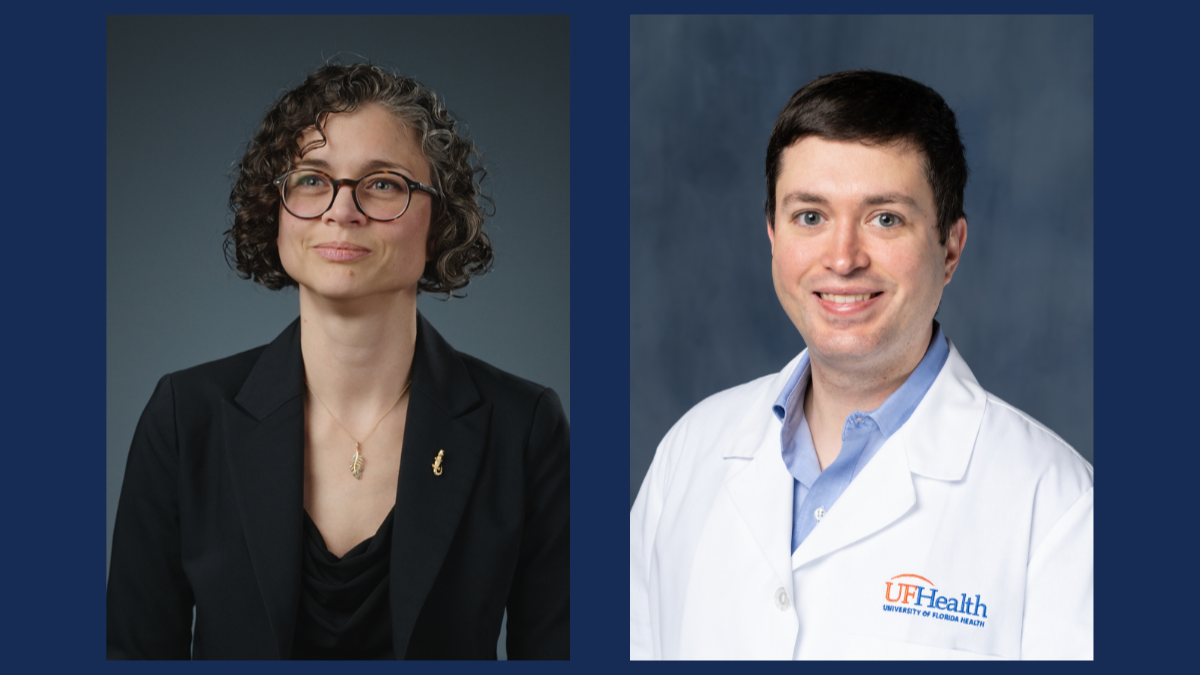UF Health Cancer Center shared a post on LinkedIn:
“An accomplished basic science researcher and an innovative clinical investigator have been named to the leadership of the UF Health Cancer Center’s Translational Research Council, which aims to efficiently move cancer research discoveries from the lab to the clinic to benefit patients.
The council will be led by Olga Guryanova, an extramurally funded investigator with more than 15 years of experience in translational cancer research, and John Ligon, M.D., a pediatric oncologist who is pioneering novel clinical trials at UF Health. Other members of the council include the center’s executive leadership team, research program leaders and clinical research leadership.
By facilitating the movement of research findings into well-designed clinical trials, the council ensures multidisciplinary cancer research at UF continues to have a direct, positive impact on patient care. Its goal is to increase the number of investigator-initiated trials activated at the center by engaging internal and external stakeholders involved in research strategy.
Guryanova’s research focuses on molecular mechanisms of chemotherapeutic resistance and strategies for cancer cell re-sensitization, with a focus on precision oncology. Her lab investigates the mechanisms of cross-talk between epigenetics and chromatin organization and how these processes contribute to blood malignancies such as acute myeloid leukemia, resistance to therapies and clonal evolution. Ultimately, the goal is to harness this understanding to develop improved therapies for leukemia.
‘Our Cancer Center boasts a standout portfolio of high-impact basic research in multiple domains from genetics, metabolism and the microbiome to biomedical engineering, drug discovery, cell therapy and artificial intelligence applications,’ said Guryanova, an associate professor in the UF Department of Pharmacology and Therapeutics and member of the Cancer Center’s Mechanisms of Oncogenesis research program. ‘Helping transform these discoveries through Translational Research Council services into real-world solutions that would make the lives of cancer patients even a little better would be the ultimate reward.’
Ligon’s interests include immunotherapy, tumors and bloodstream infections. His work is focused on advancing new treatments that harness the immune system into early-phase pediatric clinical trials, including some involving lipid nanoparticles that are available only at UF.
‘My goal for the council is really what all of us who work on cancer research want: to develop new effective treatments for cancer and translate these new discoveries from the bench to the bedside where real patients can benefit,’ said Ligon, an assistant professor in the UF Department of Pediatrics and member of the center’s Immuno-Oncology and Microbiome research program. ‘Through my prior training and my work at the UF Health Cancer Center, I have seen many examples of how to navigate this process effectively, and I am excited to share my experience with other investigators.’
The Translational Research Council is a resource for Cancer Center investigators who have a clinically translatable discovery, providing guidance throughout the process. It can demystify the regulatory process, offer advice on necessary preclinical studies, cultivate connections with experts — whether clinical trialists, medicinal chemists, biostatisticians or others — and facilitate interactions with the Clinical Research Office.
The council is a core part of the center’s growth as a National Cancer Institute (NCI)-designated cancer center and push to obtain comprehensive designation over the next decade.
‘The Translational Research Council understands that navigating the translational pipeline from bench to bedside is difficult, and each project presents its own unique challenges,’ Ligon said. ‘We are excited to meet with investigators at any stage of translation to explore how we may be able to help the investigators get to the next stage in their research.’ ”
More posts featurig UF Health Cancer Center on OncoDaily.


